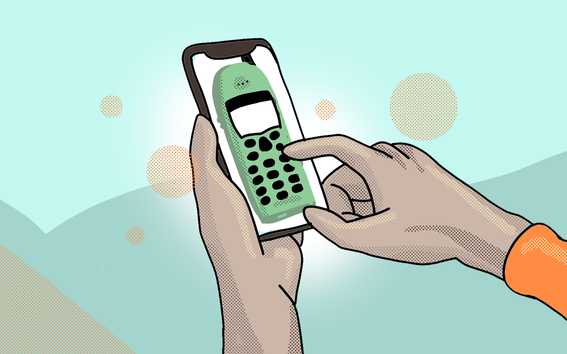Why won’t some people use a smartphone? And is that difficult?

In a world where more and more services and social interaction are based on mobile apps, a smartphone has become close to a necessity. Despite this, some people avoid smartphones and instead use a dumbphone – a traditional mobile phone or a reduced-feature designer phone.
New research from Aalto University has explored why some people choose not to use smartphones and what the consequences are. The study, which will appear in the April issue of the prestigious Proceedings of the ACM on Human-Computer Interaction, is based on interviews with participants who chose to give up their smartphone or never had one – a decision that can make daily life more burdensome, limit choices, and sometimes even increase risks.
‘Custom dumbphones can be expensive, and some of the European participants had even ordered phones from Africa that weren’t available on the domestic market,’ says Associate Professor Janne Lindqvist, head of the computer science department.
The participants all came from countries and social surroundings where smartphones were available and the obvious choice. Their reasons for turning them down varied. Some wanted to get away from the distractions a smartphone unavoidably causes, while others wanted to avoid online surveillance. For parents of under-age children, the main reasons were a desire to keep their offspring away from social media and to avoid the temptation of a smartphone interrupting time with their kids.
For a few, there were religious principles behind the choice.
‘For adherents of Haredi Jewish practice, the form factor of the phone played an important role because it doesn’t appear too technically precious or novel, and the sometimes cumbersome functionality was seen as a way to prevent excessive use. Aside from necessary communication technologies such as voice calls, text, and sometimes GPS, dumbphones usually have little else, which is valued by users as a way to focus on what they feel really matters,’ explains Annabel Rothschild, a doctoral researcher at the Georgia Institute of Technology.
People without smartphones have to get inventive
Refusing to use a smartphone caused all sorts of inconveniences in people’s daily lives, starting with the difficulty of finding a durable dumbphone. It also proved difficult to make various purchases, deal with two-factor authentication, and meet employers' expectations of reaching employees outside working hours or locations.
At the height of the pandemic, there were also mobile device-based access rights around the world that limited the interviewees’ mobility. In the worst cases, the lack of a smartphone also made life unsafe in the middle of the night, with access to quick-call rides limited to mobile apps.
‘We found that in many societies, all sorts of tricks had to be invented to make life without a smartphone work,’ says Lindqvist.
Some of the participants chose to use technical workarounds, such as stand-alone devices that replaced individual smartphone functions. Many also used a family member’s or acquaintance’s smartphone when the need arose. Thus, in practice, leading a smartphone-free life requires either technical know-how or flexible friends and family.
See peer-reviewed preprint version of the paper here.
- Published:
- Updated:
Read more news

From space technology and shimmering wood to shapeshifting textiles – explore world-changing research in the brand new Marsio building
The Makers of the Impossible exhibition and the Designs for a Cooler Planet festival will kick off the autumn season at Marsio – Aalto University’s brand new, open-to-all campus venue.
Transforming interdisciplinary education: Sustainable Global Technologies (SGT) across four continents
The true impact of our actions often unfolds over time, as demonstrated by the students at the SGT FAIR’24 on May 22. Their work showcased how a single student challenge can drive significant change.
CEST researchers receive significant LUMI supercomputing resources
Read how two successful machine learning projects got support by a supercomputer